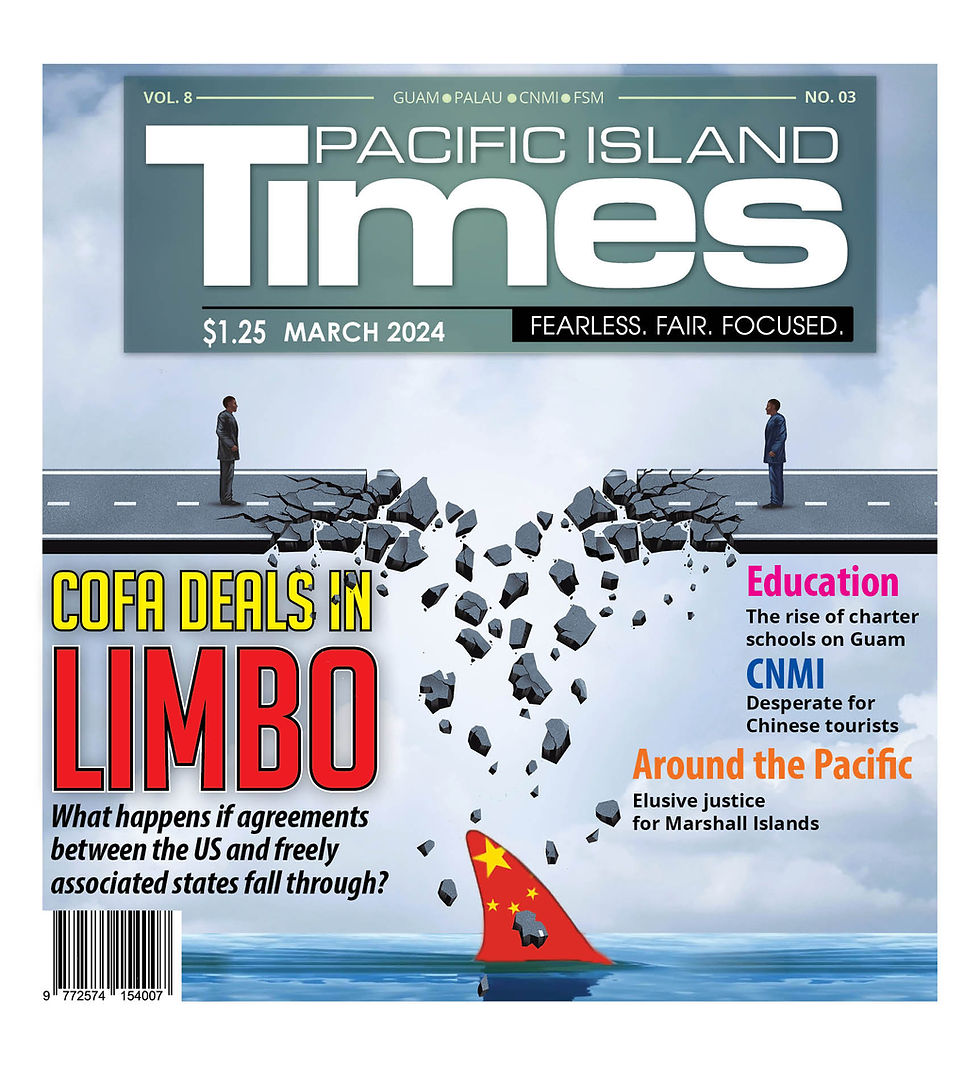
By Mar-Vic Cagurangan
Despite compromises that have been reached on nuclear reparations, the lingering impact of the massive U.S. nuclear testing in Bikini Atoll is likely to be the recurring centerpiece of future dialogs between the U.S. and the Marshall Islands, a State Department official said.
“This is a sensitive issue, and we remember just on March 1, we commemorated
Nuclear Remembrance Day,” said Taylor V. Ruggles, senior advisor for COFA Implementation at the U.S. Department of State. “And I’ll just say that the United States has long recognized the effects of the nuclear testing program and has accepted and acted on its responsibility.”
The nuclear compensation was the sticking point during the renegotiation between the U.S. and the Marshall Islands on expired economic provisions of the Compact of Free Association.
'
“I don’t want to convey the impression that this is a closed chapter or that this is not something that will continue to pop up, that we’ll need to work through together, but I do think that the negotiators on our side, led by Ambassador (Joseph) Yun, have crafted an agreement that respects the interests and priorities of both countries,” Ruggles said.
Of the $7.1 billion COFA package pledged to freely associated states for 20 years, $2.3 billion is earmarked for the Marshall Islands.

The 2023 COFA Amendment Act authorizes funding for basic public service deliveries such as health and education, infrastructure improvement and maintenance of the Compact Trust Funds for the Marshall Islands, Palau and the Federated States of Micronesia, collectively known as freely associated states.
Both Palau and the FSM have ratified the COFA Amendment Act, but the measure remains pending in the Marshall Islands’ Nitijeļā parliament.
“I do not want to prejudice the outcome of the deliberations in the Marshall Islands, so we’ll watch that process carefully and look forward to working with all three governments moving forward,” Ruggles said.
“I think we’ve found an agreement that is robust and provides great discretion for the government of the (Marshall Islands) to respond to the needs, the health and environmental needs of its population,” he added.
The U.S. carried out 23 nuclear tests in Bikini Atoll from 1946 to 1958, displacing residents and causing health problems for the population.
At the COFA negotiating table, Ruggles said the U.S. panel sought to meet the Marshall Islands’ priorities and needs without discounting the “full and final settlement concerning those issues” under the Section 177 Agreement sealed in 1986.
ADVERTISEMENT
“In negotiating the agreement with RMI, they wanted to at least preserve the option of having some sort of direct individual support distributions for the population," Ruggles said.
He noted the need for U.S. officials to sit down with Marshallese leaders through the Trust Fund Committee to iron out the implementation phase and fund-distribution policy.
“I’ll have to consult the letter of the RMI Trust Fund Agreement, but there is the possibility to have distributions that would resemble universal distributions,” said Keone Nakoa, deputy assistant secretary for Insular and International Affairs at the U.S. Department of the Interior.
“But that’s something that Nitijeļā would have to pass or have additional action if they wanted to access, and then there are specific pieces of the Trust Fund Agreement that would need to be satisfied,” he added.
At any rate, Nakoa said the agreement with the Marshall Islands was designed to reflect the Pacific nation’s priorities. “We look forward to a fruitful and positive response from the RMI as they conduct their own democratic process,” he said.




Comentarios